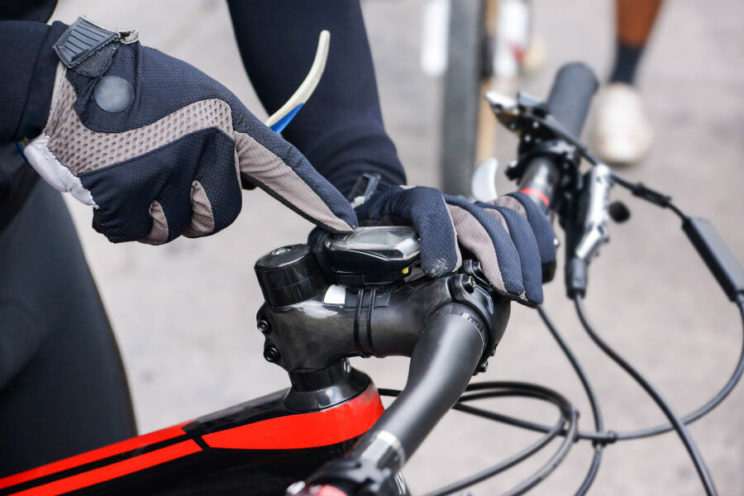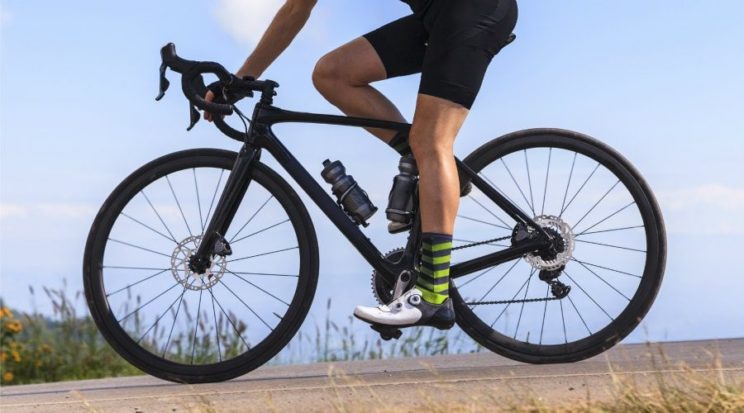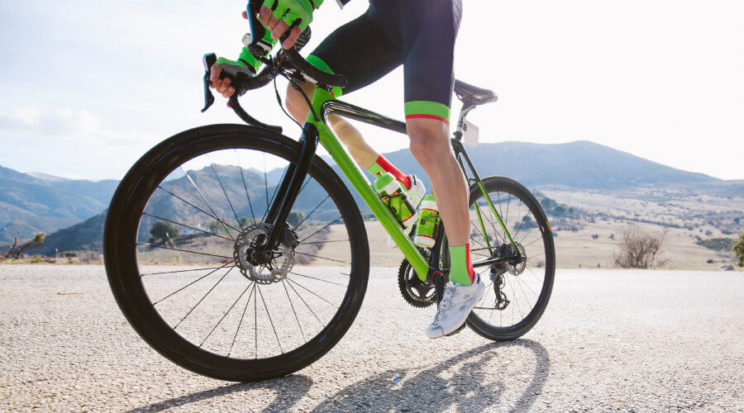It is one of the questions that are increasingly amateur cyclists. The potentiometer - also known as the power meter - is an essential element of any professional. But are they really useful for someone who takes cycling as a
hobby?
What is true and corroborated by any expert in physical preparation is to train, or even compete, with the potentiometer it allows to measure each effort precise and instantaneously.
The power meter provides very valuable information to improve the state of form and save efforts.
If you are interested in possessing this valuable information to improve your performance as a cyclist, you should consider the purchase of a potentiometer.
But before, and above all, taking into account its high price, it is necessary to take into consideration a series of advantages and inconveniences, such as these that we explain below, to know if it really will be useful in your outputs.
[IRP posts = "1382" name = "The 10 innovations that have changed road cycling"]
Reasons to buy a potentiometer

In professional cycling the use of a power meter is widely established. And that is not by whim. These are some of the advantages contribute the potentiometers and which you can benefit:
Provides truthful and precise data on your performance
A potentiometer, as the name implies, measures the power, expressed in watts (W) that we apply on the pedaling, resulting from the relationship between force and speed.
The meter, installed in strategic points of the bike, such as pedals, connecting rods, pedalier or bus handlebar), connected and synchronized with the meter (usually by an ant+wireless protocol).
Power data provides more precise and reliable information than physiological, such as heart rate. The former do not vary depending on external factors such as climate, atmospheric pressure, altitude or the physical state of the cyclist (tiredness, stress, etc).
Optimize your pedaling cadence

In the pedaling, advancing as much as possible with the minimum energy expenditure is the dream of every cyclist. A potentiometer can help you improve this relationship.
It is enough to know which pedaling we generate more watts, either in rise or flat terrain. And this data can only be obtained by installing a potentiometer on your bicycle.
Many potentiometers are capable of detecting and showing in real time peddeire data, expressed in RPM (revolutions per minute). Hence you can improve on the march, pedaling with more or less intensity to find the cadence in which you generate more watts.
You will take advantage of each training
The two previous reasons will make your performance take advantage of each way out. With a potentiometer you can measure all the parameters and details of your pedaling.
You can interpret this information every day, or week by week, through the
software that incorporate and show the records in the cyclocomputer.
Since the arrival of potentiometers, the dreaded 'birds' in professional cycling are less and less frequent
You can compare the data obtained and see your evolution, in order to introduce changes in your training plan, if necessary.
The help of a personal coach at this point is very important, in case you do not have much experience training with watts.
You will economize your efforts

Training by sensations, or based on heart rate data, your physical limits are easier to overcome without knowing it and enter the dreaded area of overuse, accelerating the appearance of fatigue.
If you do not have objective data of your performance, which only offers the potentiometer, you will not know the exact margins in which you must pedal. Nor at what concrete time increase or reduce the intensity of training, which generates an extra energy expense that can disrupt your improvement plans. In short, the power meter will help you save your efforts.
It serves as a guide to compete
Finally, if you have decided to enter the competition, do so accompanied by a potentiometer in each race will be a point in favor to achieve success.
Many professional cyclists take advantage of having real -time power data to establish margins and thus avoid overdies that derive in fatigue or even birds.
In fact, the latter are increasingly frequent in professional cycling. Precisely because the potentiometer tells the cyclist in which cadence should be pedal at all times not to enter that dreaded area of overwriting.
Reasons not to buy a potentiometer

In addition to these proven advantages, the purchase of a power meter is also accompanied by a series of inconveniences. You must reflect on all of them before deciding to acquire one.
Its price is high
It is certainly the great disadvantage when buying a potentiometer. The majority of amateur cyclists do not have enough budget and that makes them back in the last term.
Although its market value has fallen recently, and the increased offer, a new potentiometer does not usually cost less than 300 euros. However, and as a purchase incentive, there are very reliable models with error margins close to 2% for this entrance price, such as the Stages Power for the left connecting rod.
A bicycle potentiometer
Apart from the enhancement integrated in the pedal, which can be changed from one bike to another without problems, the rest of the meters, especially the most reliable and durable (spider and pedalier axis), have many complications at the time at the time to change them from one bike to another.
If you train with two bicycles (one from Aero road and one of great background, for example), it is best to buy one for each one, with the consequent increase in spending.
They are incompatible with some connecting rod models

In addition to this difficulty, each potentiometer has its compatibilities. There are only valid meters for certain shimano rods, others for SRAM, the bushing for some wheels, etc.
That is why before buying a power meter you must know these compatibilities, which can limit the number of options to choose and be forced to pay more than you had planned.
Difficulty interpreting the data
It is of no use to have a potentiometer if we are not going to know how to interpret the data that offers you and apply them in your training plan.
If you do not have physical preparation knowledge or ever plan your outputs thinking about the improvement of performance, it is advisable to hire a personal coach.
This should have experience in power data, to receive the best advice.
Addiction or dependence on the potentiometer
Although it has meant a great advance for the improvement of the cyclist, the power meter can also generate the effect of robotizing the cyclist, something that brought to the extreme generates total dependence and even addiction in the data, discarding the sensations.
This last aspect should never forget any cyclist. You cannot make all decisions depending exclusively on what marks a screen. An average term, which combines data and sensations, would be ideal.
Conclusions

It is worth buying a potentiometer if you are really convinced to improve your performance in each output or training, or if you have raised a schedule of competitions or cycling marches of high physical demand.
The high investment will be rewarded in the medium and long term if you adequately interpret the data obtained and use them to improve.
For the rest of amateur cyclists a power meter is a still expendable element. Its high expense does not compensate for the scarce game that can be taken out of it if a defined training plan or objectives set during the season is not followed.
It would be more recommended to adqurir a pulsometer, much cheaper and easy to install, and train based on heart rate areas.
 In professional cycling the use of a power meter is widely established. And that is not by whim. These are some of the advantages contribute the potentiometers and which you can benefit:
In professional cycling the use of a power meter is widely established. And that is not by whim. These are some of the advantages contribute the potentiometers and which you can benefit:
 In the pedaling, advancing as much as possible with the minimum energy expenditure is the dream of every cyclist. A potentiometer can help you improve this relationship.
It is enough to know which pedaling we generate more watts, either in rise or flat terrain. And this data can only be obtained by installing a potentiometer on your bicycle.
Many potentiometers are capable of detecting and showing in real time peddeire data, expressed in RPM (revolutions per minute). Hence you can improve on the march, pedaling with more or less intensity to find the cadence in which you generate more watts.
In the pedaling, advancing as much as possible with the minimum energy expenditure is the dream of every cyclist. A potentiometer can help you improve this relationship.
It is enough to know which pedaling we generate more watts, either in rise or flat terrain. And this data can only be obtained by installing a potentiometer on your bicycle.
Many potentiometers are capable of detecting and showing in real time peddeire data, expressed in RPM (revolutions per minute). Hence you can improve on the march, pedaling with more or less intensity to find the cadence in which you generate more watts.
 Training by sensations, or based on heart rate data, your physical limits are easier to overcome without knowing it and enter the dreaded area of overuse, accelerating the appearance of fatigue.
If you do not have objective data of your performance, which only offers the potentiometer, you will not know the exact margins in which you must pedal. Nor at what concrete time increase or reduce the intensity of training, which generates an extra energy expense that can disrupt your improvement plans. In short, the power meter will help you save your efforts.
Training by sensations, or based on heart rate data, your physical limits are easier to overcome without knowing it and enter the dreaded area of overuse, accelerating the appearance of fatigue.
If you do not have objective data of your performance, which only offers the potentiometer, you will not know the exact margins in which you must pedal. Nor at what concrete time increase or reduce the intensity of training, which generates an extra energy expense that can disrupt your improvement plans. In short, the power meter will help you save your efforts.
 In addition to these proven advantages, the purchase of a power meter is also accompanied by a series of inconveniences. You must reflect on all of them before deciding to acquire one.
In addition to these proven advantages, the purchase of a power meter is also accompanied by a series of inconveniences. You must reflect on all of them before deciding to acquire one.
 In addition to this difficulty, each potentiometer has its compatibilities. There are only valid meters for certain shimano rods, others for SRAM, the bushing for some wheels, etc.
That is why before buying a power meter you must know these compatibilities, which can limit the number of options to choose and be forced to pay more than you had planned.
In addition to this difficulty, each potentiometer has its compatibilities. There are only valid meters for certain shimano rods, others for SRAM, the bushing for some wheels, etc.
That is why before buying a power meter you must know these compatibilities, which can limit the number of options to choose and be forced to pay more than you had planned.
 It is worth buying a potentiometer if you are really convinced to improve your performance in each output or training, or if you have raised a schedule of competitions or cycling marches of high physical demand.
The high investment will be rewarded in the medium and long term if you adequately interpret the data obtained and use them to improve.
For the rest of amateur cyclists a power meter is a still expendable element. Its high expense does not compensate for the scarce game that can be taken out of it if a defined training plan or objectives set during the season is not followed.
It would be more recommended to adqurir a pulsometer, much cheaper and easy to install, and train based on heart rate areas.
It is worth buying a potentiometer if you are really convinced to improve your performance in each output or training, or if you have raised a schedule of competitions or cycling marches of high physical demand.
The high investment will be rewarded in the medium and long term if you adequately interpret the data obtained and use them to improve.
For the rest of amateur cyclists a power meter is a still expendable element. Its high expense does not compensate for the scarce game that can be taken out of it if a defined training plan or objectives set during the season is not followed.
It would be more recommended to adqurir a pulsometer, much cheaper and easy to install, and train based on heart rate areas.












